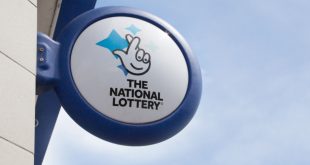
The UK Gambling Commission (UKGC) has emphasised the necessity for industry leadership to contribute opinions and insights on imminent reforms.
Compliance expert Bill South examines the evolution of the Commission’s relationship with leadership over the past decade and ponders whether both entities can collaborate to seize this seminal opportunity for effective gambling reforms.
Earlier this year, the long-overdue review of the 2005 Gambling Act was published. As Gambling Commission CEO Andrew Rhodes put it, “The review is a once-in-a-generation opportunity to deliver positive change for gambling in Great Britain and for all people impacted by it”.
So, heady stuff. Now, the Commission is embarking on a series of consultation exercises to determine ways to change how the 2005 Act regulates gambling in Great Britain. But has enough changed – either at the Commission or within the industry – to take advantage of such an opportunity?
Well, one positive sign emerged recently with the Commission announcing their intention to form an Integrity Panel that actually includes industry figures who can provide operator insight, something that has been notably absent from other recent expert consultations.
The importance of having industry representation has been proven out before with the Parry Panel on sports betting integrity, arguably one of the most far-reaching collaborations between the regulator, the industry and external experts to date.
So, the Commission’s approach is to be welcomed. But maybe now is the time to ask a couple of other pertinent questions.
What else needs to change at the Commission in order that it can be agile enough to meet this once-in-a-generation opportunity? What sort of regulator have they become since the Act came into force in 2007? Are they an accurate reflection of today’s modern mobile society?
Secondly, are those who lead the industry continuing to suffer from the blind spots that resulted in numerous significant regulatory failures, and spurred the dim view taken by many towards gambling? In other words, is there clear evidence of responsible leadership within the sector?
‘Balance’ is the aspirational term often used when discussing what the industry should look like. The balance of regulation vs the balance of consumer freedom of choice. Can the gambler be trusted to make informed choices about their betting habits, or does it require State intervention for their own protection?
Arguably the industry has not passed its own tests here, despite its protestations of being data-rich and therefore able to make the right calls about responsible behaviour triggers and intervention. As Bob Gray the technical director at DAO Racing observed when describing data in a sporting context, “Data never tells you what to do – or what you need – it just gives you information to improve your decision”.
Despite plenty of data telling us all what the effects of too much alcohol or smoking are, for example, we are not yet at the stage where we are regulated as to how many pints we can drink or cigarettes we can smoke (clearly not in the latter case!). Although it is indisputable that gambling does cause real harm to individuals and those around them, I would suggest that issues connected to the over-consumption of alcohol (and there are many) and smoking do more damage, and yet the freedom to consume continues. Is the prism through which gambling is viewed more prone to extreme opinions, and does that in itself require a more considered approach from the regulator?
It is self-evident that industry CEOs and their Boards need to take more tough decisions in relation to customer behaviour and spend. Clarity is still needed as to what nobody being harmed by gambling actually looks like. Defining who owns the vision and ambition to make that a reality surely needs to be uppermost in their minds.
Management of crucial regulatory issues by gambling’s leaders is more important than ever as they engage in the Commission’s consultative process.
This is a once-in-a-generation opportunity to reform gambling legislation in Great Britain. The amount of knowledge and, yes, data accrued must put the Commission in an unrivalled position to see the review through and make the positive changes as required. It has to, otherwise it will have failed in its place as a key stakeholder within this complex ecosystem. It can’t be a one-trick-pony that only knows how to issue fines. And it should itself demonstrate the balance that is sought. That means using language with care when describing the issues at hand, following the evidence (as a wise old detective once said), and not making your mind up as to guilt beforehand.
There are senior figures running the gambling industry who are absolute in their conviction that protecting customers makes sound commercial sense. At the recent SBC Summit in Barcelona, I had the pleasure of hosting a panel of senior industry figures as they discussed strengthening new betting markets with data-driven integrity.
I was struck by the commitment of not only those on the panel, but also of many others I spoke to while there who want to improve player protection. Two words kept cropping up: collaboration and cooperation. These are the sentiments we need to hear supporting the Commission as it sets the standards of the best regulatory practices.
So steady ahead everyone…









